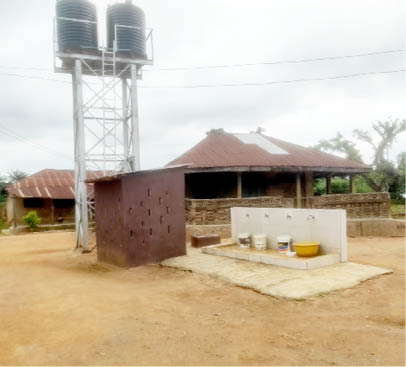Osun community seeks social amenities
The people of Igbotele village in Odo-Otin LGA of Osun State have appealed to the state government to provide them with social amenities to improve their quality of life. Some of the villagers, Temitope Mustafa, Muritala Yusuf and Zulaykoh Jamiu, said basic amenities were not a luxury, but a necessity, calling for improved infrastructure necessary […]

the only borehole serving the entire community
The people of Igbotele village in Odo-Otin LGA of Osun State have appealed to the state government to provide them with social amenities to improve their quality of life.
Some of the villagers, Temitope Mustafa, Muritala Yusuf and Zulaykoh Jamiu, said basic amenities were not a luxury, but a necessity, calling for improved infrastructure necessary for their wellbeing and the continued prosperity of their community.
Zulaykoh, a housewife, lamented that despite the importance of Igbotele to the local economy, the village was deprived of essential social amenities.
She said, “The lack of potable water makes life challenging for us in this village, hindering our ability to thrive and sustain our contribution to the state’s agricultural output.”
- PHOTOS: Presidency finally unveils new Presidential jet, keeps mum on cost
- Adamawa begins payment of N70,000 minimum wage in August
Muritala, who is the imam of the village, said, “It took the intervention of the Osun State Community and Social Development Agency to bring some relief to Igbotele village by constructing a borehole to tackle the persistent water scarcity.
“This long-awaited project has been the lifeline for the villagers who have struggled for years without access to potable water. The borehole now provides the much-needed water for daily use, offering a glimpse of hope in our community which is still yearning for more comprehensive development and infrastructure.”
Mustafa, a farmer, called on the government to provide additional support to encourage farmers to remain in the village and continue their farming activities.
He said, “With better resources, we believe more farmers will stay in the village, ensuring that our crucial contributions to the state’s food security can continue uninterrupted.”
